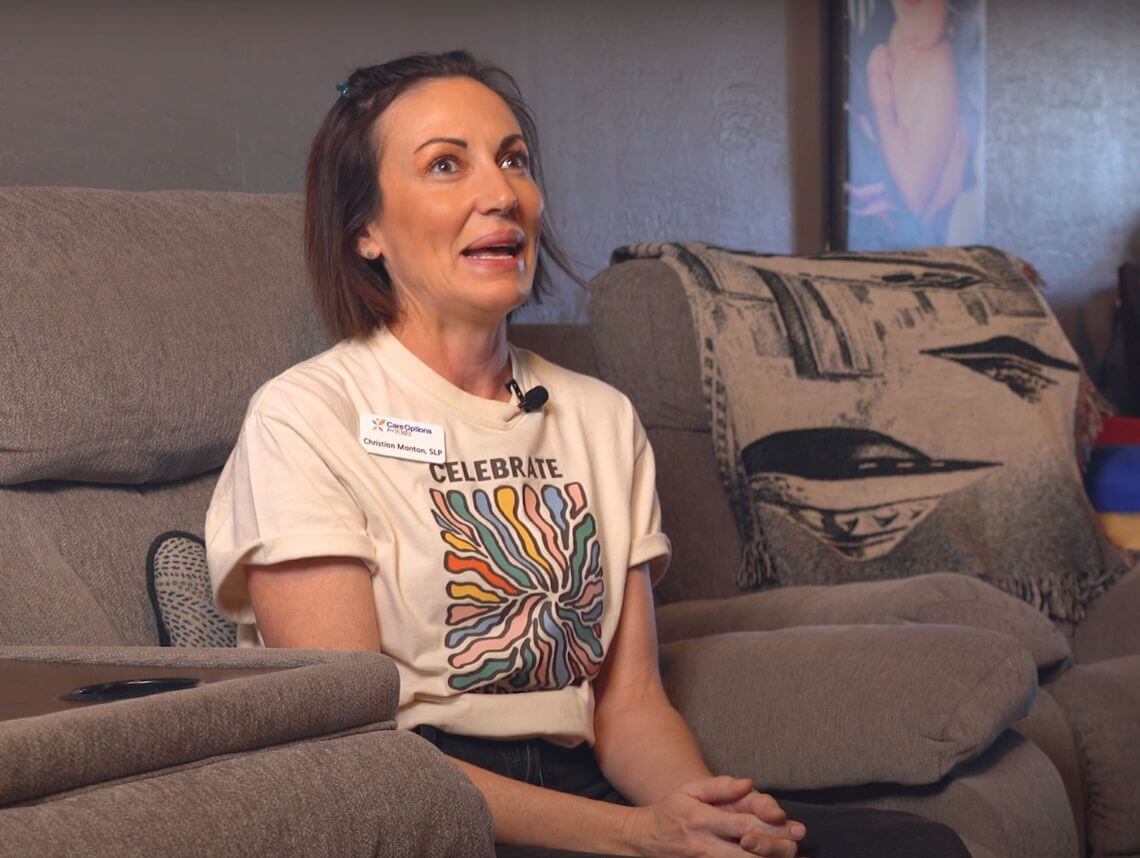Solace Blog
- Activities19
- Autism & Behavioral4
- Community154
- Early Intervention71
- Events & Giving Back20
- Extraordinary Kids22
- Family Caregiver4
- Home Care Therapy60
- News94
- Parent Articles83
- Patient Testimonial21
- Pediatric Therapy77
- Pediatric Therapy Career46
- Private Duty Nursing1
- School-Based Services1
- Telehealth Therapy27
- Tips & Advice66
Summer Reading List: Books to Inspire Therapist Growth
Cooling Off with Aquatic Therapy: Benefits and Best Practices
Sensory Activities For Kids

From School To Home: Christian’s Shift To Impactful Therapy
Speak, Listen, Connect: 6 Communication Strategies for Therapists

Solace Celebrations: Sebastian is Clearing His Speech Therapy Hurdles
Bimonthly, we try and put the spotlight on one of the many special kids we get to work with every day! Previously, we showed the amazing improvement Oliver has been making through working with his speech and physical therapists and this week we want you to meet Sebastian who is taking down communication barriers through speech and language therapy.
Using interests to encourage speech
Sebastian was having trouble staying motivated and was not yet verbalizing or signing a lot to communicate. To work on this, Sebastian’s speech therapist Tatiana tried to brainstorm different ideas to work on expressive language and decided to try and use pictures of cars (which he loved) in an attempt to get him to use at least 10 words within the session. Tatiana was able to capture the moment when she first pulled up the picture of the car and he looked at his mom then back at her and said “Whoa!” After that, she was able to get over 10 different words out of Sebastian during the session!
Why speech and language therapy go beyond just words
Speech therapy is not just about words but really focuses on language and communication overall. The goal is to help children whether it be non-verbal autism, speech impediments or even social language find the best way to communicate effectively so they can get their thoughts and feelings across. At Solace, our clinicians take the time to understand the individual speech needs of our clients in order to provide individualized treatment plans and objectives to make sure that their speech and language goals are being met and validated.
Why in-home speech therapy can be ideal
As always, Solace in home pediatric therapy works with kids in the place that they are most comfortable and confident; your home. By utilizing this comfortable environment, our practitioners are able to provide your family with high quality care and therapy. This helps to make sure that your child is able to focus on the treatment and skills being taught by the therapist without the distractions and possible fears of being in a new or sterile clinical environment with all of the different people, sounds and objects that entails. This allows for a greater sense of trust and familiarity with the therapist so that your child can really dive into the work, meet their goals and grow as a person.
Share this Post